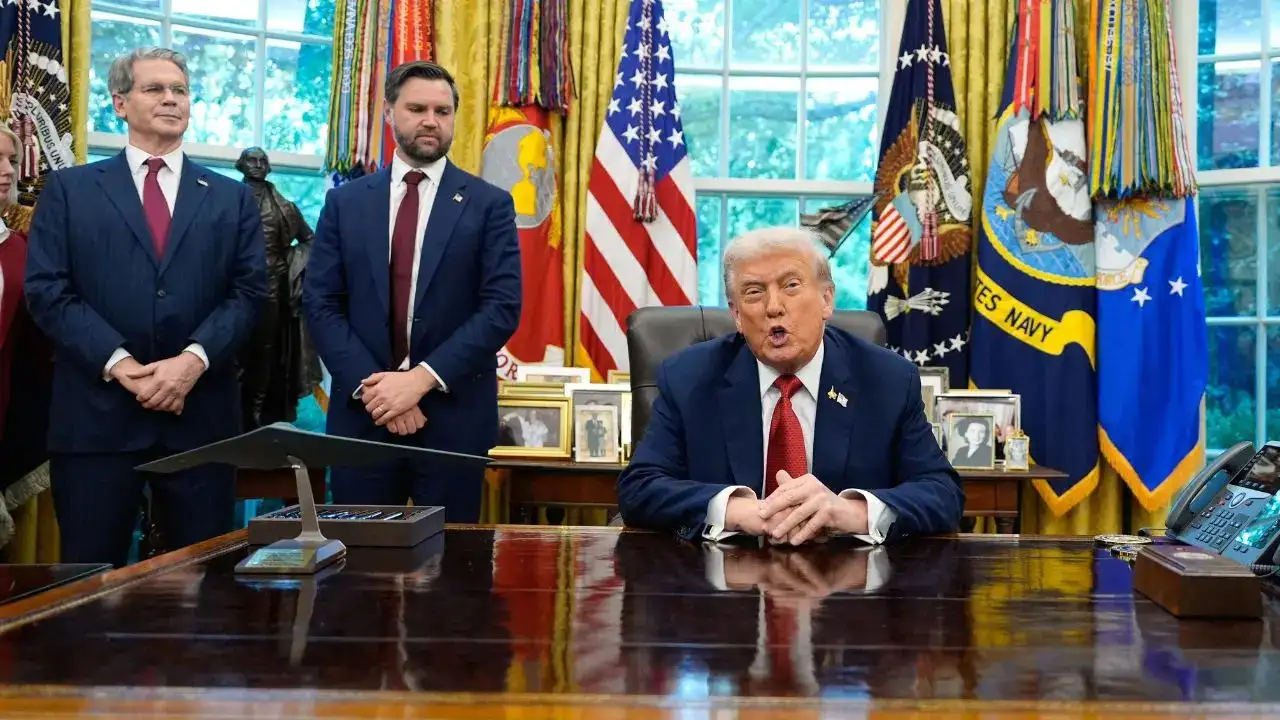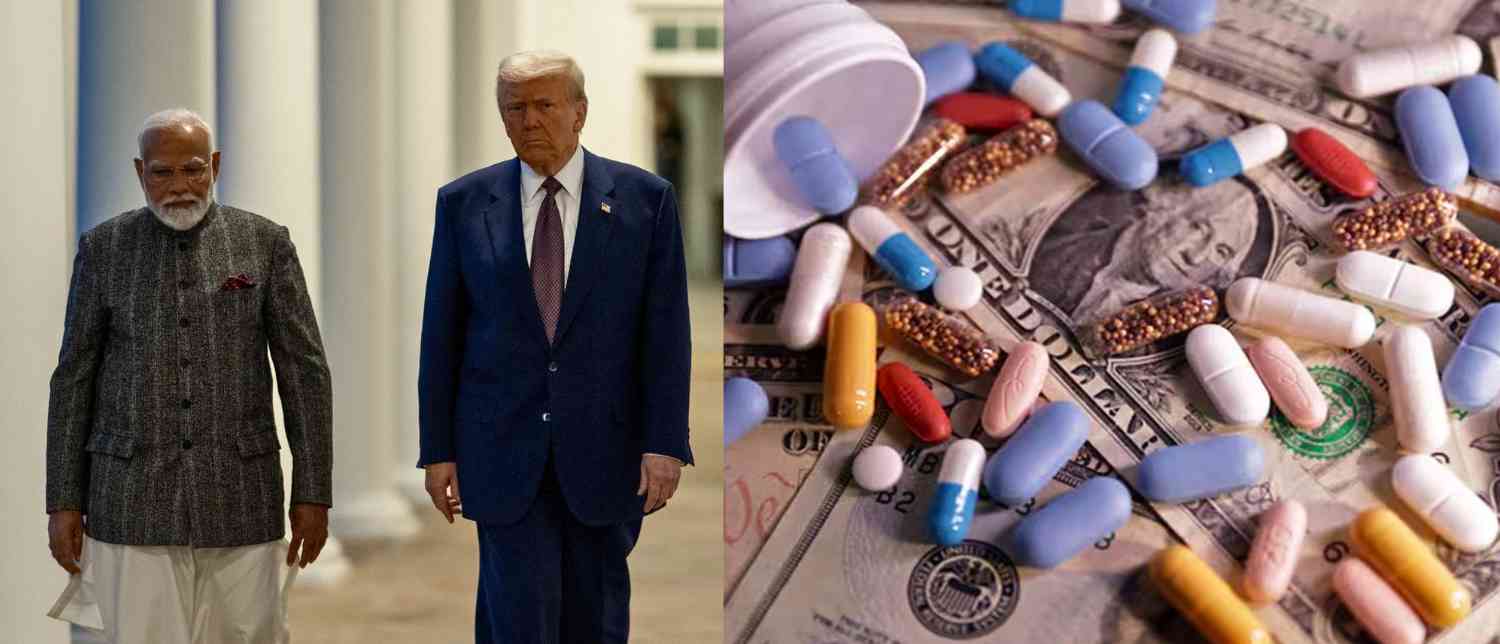US President Donald Trump has announced a 100% tariff on imported branded and patented pharmaceutical products starting October 1, 2025. This tariff will apply unless drug companies are building or have started building manufacturing plants within the United States. The announcement is part of a broader effort to boost domestic manufacturing and reduce reliance on foreign imports of critical medicines.

India, a major exporter of pharmaceuticals to the US, could face significant challenges from this move. Indian pharmaceutical firms supply about 45% of generic drugs and 15% of biosimilars used in the US, although the new tariff currently targets only branded and patented drugs, which are dominated mainly by large multinational companies. However, the sector remains cautious about the potential future extension of tariffs to generic drugs, which form the bulk of India's pharmaceutical exports to the US.
President Trump announced the tariff on his social media platform, Truth Social, stating: "Starting October 1st, 2025, we will be imposing a 100% Tariff on any branded or patented Pharmaceutical Product, unless a Company IS BUILDING their Pharmaceutical Manufacturing Plant in America." The definition of "IS BUILDING" includes companies that have broken ground or are under construction on US soil. Companies that already have such plants being constructed will be exempted from the tariff.
Alongside the 100% tariff on branded pharmaceuticals, Trump also announced tariffs on other goods such as a 50% tariff on kitchen cabinets, 30% on upholstered furniture, and 25% on heavy trucks, emphasizing the goal of strengthening US manufacturing for national security and economic reasons.
India's pharmaceutical industry is one of the largest suppliers of medicines globally. In fiscal year 2024, India exported $27.9 billion worth of pharmaceutical products, with the US accounting for 31% of these exports (about $8.7 billion). Many Indian pharma giants such as Dr. Reddy's, Sun Pharma, Lupin, Aurobindo Pharma, and Gland Pharma derive a significant portion (30-50%) of their revenues from the US market.

While the tariffs officially target branded and patented drugs, which are less commonly exported by Indian firms compared to generics, the announcement has unsettled markets and investors. The immediate impact on generic drug exports might be limited, but there is concern about the potential for tariff extension to complex generics and specialty medicines, which could disrupt India's export growth and hurt earnings.
Financial analysts have suggested that tariff uncertainties could weigh on stock prices of Indian pharmaceutical companies and investor confidence. There are also concerns about whether drug prices in the US might rise, potentially reducing accessibility to affordable medicines for American consumers who rely heavily on Indian generics.
This tariff move reflects a growing trend in US trade policy focusing on product-specific tariffs rather than solely country-specific ones. It is part of a strategy to keep more pharmaceutical manufacturing onshore amid worries about supply chain vulnerabilities for critical drugs.
From a global trade perspective, this action may prompt Indian pharmaceutical companies to reconsider their business strategies, possibly accelerating investments in US manufacturing and partnerships to avoid tariffs. For US consumers, while the intent is to secure supply chains, there is a risk that increased costs could translate to higher medicine prices.
_1758864267.jpg)
India's government and industry bodies will likely engage in dialogue and negotiations to mitigate the impact, including exploring diversification into emerging markets and strengthening domestic innovation. The tariff announcement underscores the complex balance between protecting domestic industries and maintaining global trade flows in essential sectors like healthcare.
In sum, starting October 1, 2025, the US will impose a 100% tariff on branded and patented pharmaceutical imports to encourage domestic production. India, as a key pharma exporter, faces immediate effects on branded drugs, but generics remain largely exempt—although future changes remain a risk. The move has broad implications for trade, industry strategies, drug prices, and consumer access to medicines in the US and internationally.
With inputs from agencies
Image Source: Multiple agencies
© Copyright 2025. All Rights Reserved. Powered by Vygr Media.

























